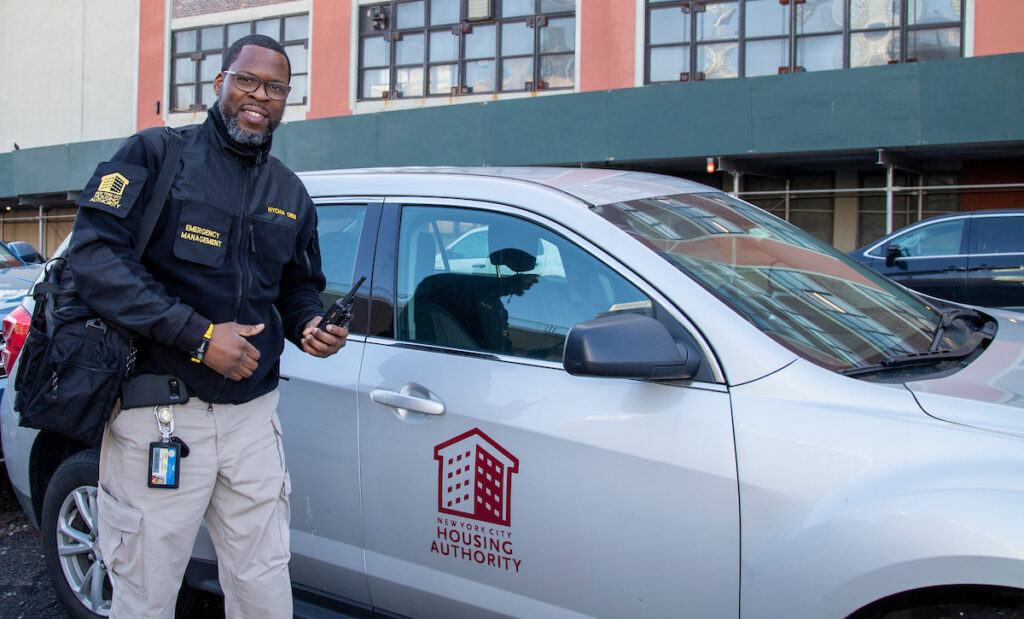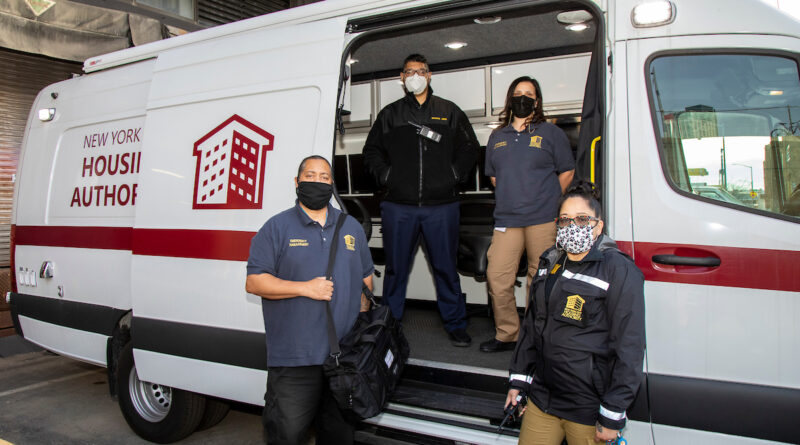Meet the OEM Field Coordinators Team
NYCHA’s Office of Emergency Management’s (OEM) Field Coordinators program improves the coordination of response efforts to emergency incidents across the Authority. Before becoming a permanent program, the initiative was launched in 2019 as a six-month pilot program, with 12 on-call field coordinators managing day-to-day communications between different responding departments (and, in some cases, other City agencies).
Kenneth Harley is an OEM Field Coordinator who participated in the 2019 pilot program and was rehired when the program became permanent. Before becoming a Field Coordinator, he was a Special Officer at a NYC Department of Homeless Services shelter for almost three years. “Being a NYCHA resident and having family members who reside in NYCHA, I’ve seen a lot,” Mr. Harley said. “Being born in Harlem and raised in the Bronx, you understand crises. In a city this big, you’re going to see many things.”
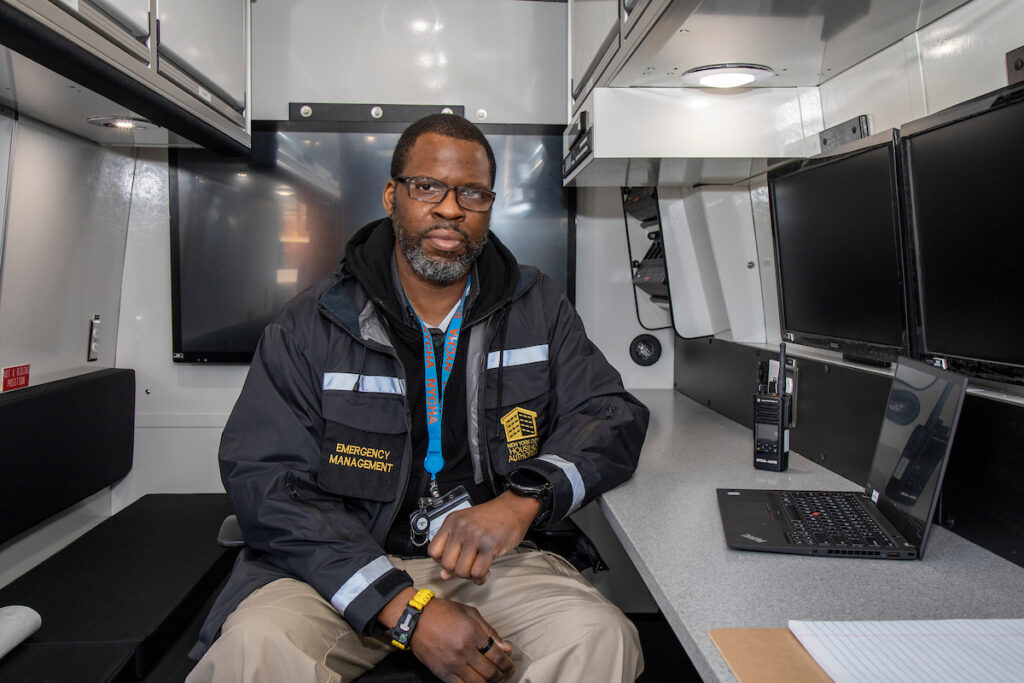
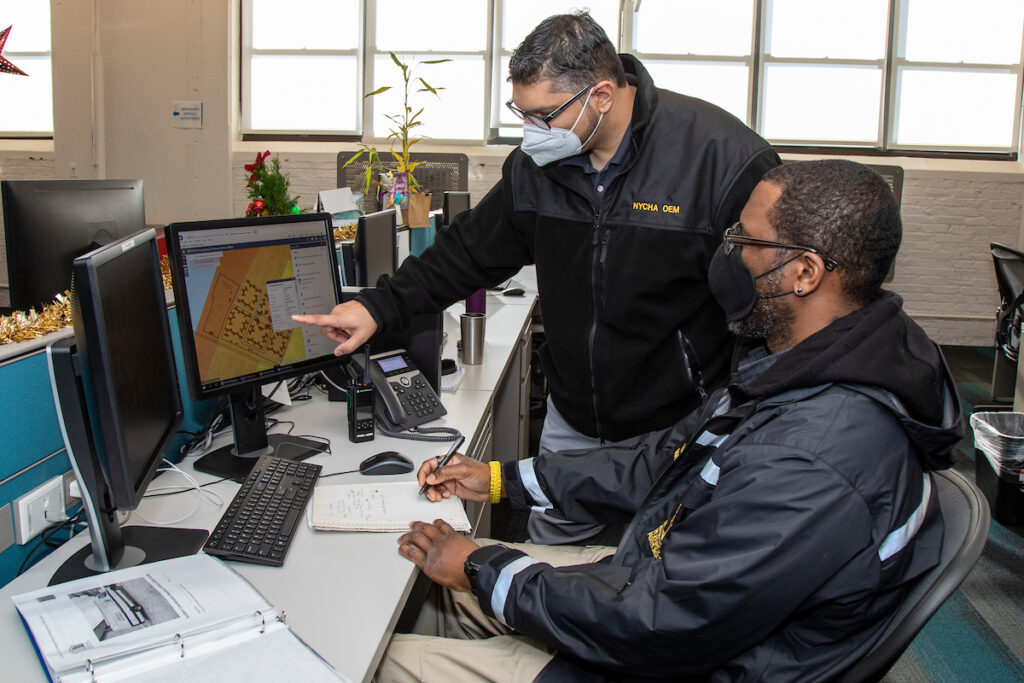
Field Coordinators start their day at watch command, where they monitor and analyze the reported information on service interruptions and impacts to NYCHA properties. Once they find out there is an incident, they gather any necessary information (such as the relevant point of contact), contact the development’s management, and identify other City agencies on the ground.
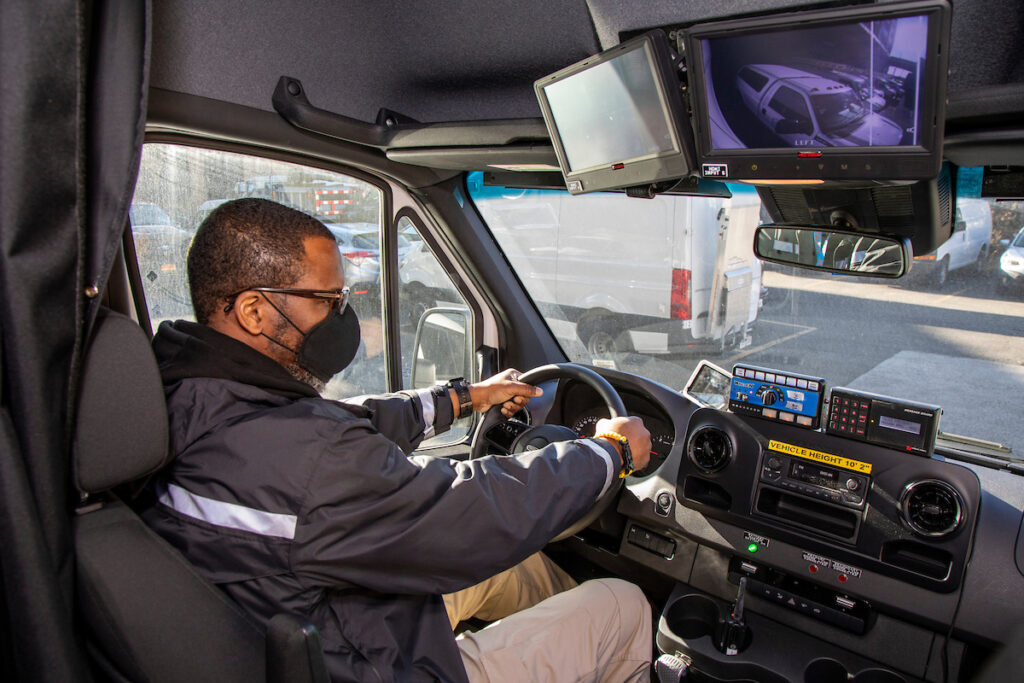
Some incidents that Field Coordinators respond to involve remote coordination between the agencies or parties involved; other incidents will require “boots on the ground” or people to physically be at the location. The team is equipped with an Incident Coordination and Response Vehicle (ICRV) that has the communication devices needed to work from the incident location.
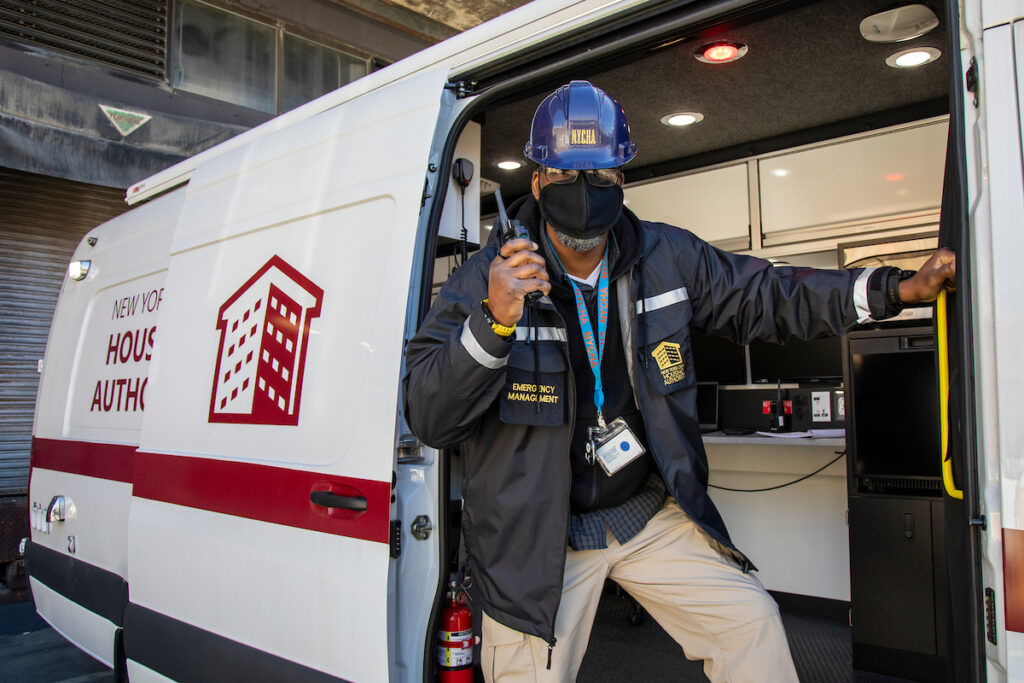
All Field Coordinators are provided a uniform. When working on the ground, they may require an additional item, like a hard hat. To communicate safely, Field Coordinators use cell phones, radios, and other communication devices.

The ICRV is not only for transportation – the vehicle becomes an Incident Command Post for all personnel responding to the incident. Field Coordinators use the devices and channels in the vehicle to check and disseminate information, send directions, and report the incident. The generator in the vehicle powers multiple computers, laptops, cellphones, and a TV, and it also supplies an internet connection.

Before getting dispatched, Field Coordinators visit the radio room, which has vital supplies and electronics. Every day, Mr. Harley and his colleagues make sure that go-bags are ready and that electronics are charged. In case of an incident, the Field Coordinators need to be able to just grab and go.
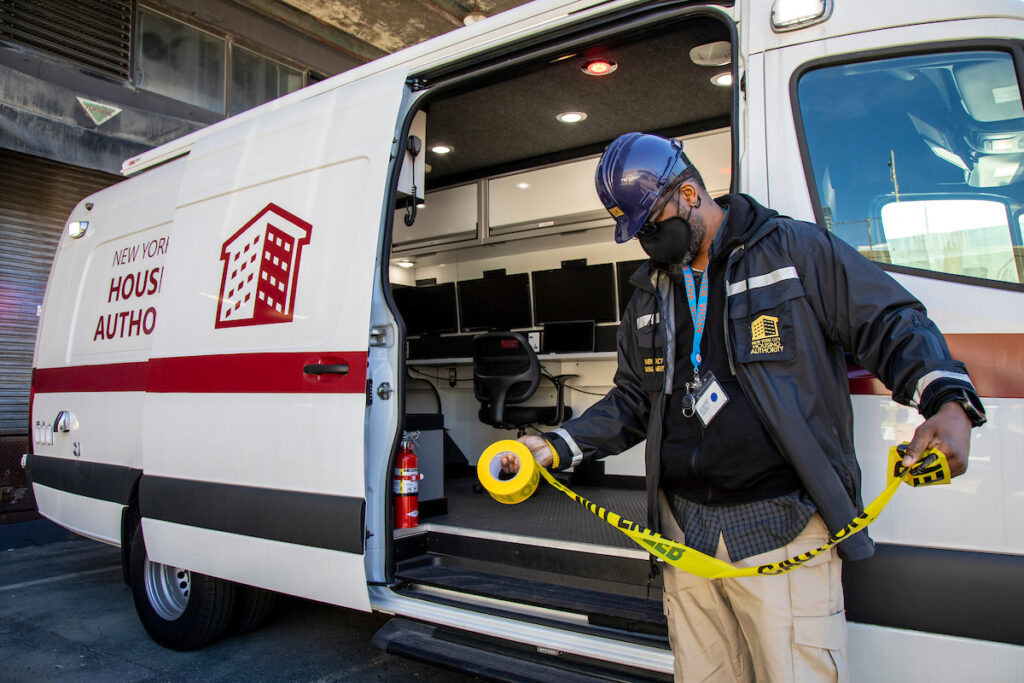
Mr. Harley said his experiences as a New Yorker and NYCHA resident compelled him to pursue a career in which he can help others during an emergency: “I thought about the past crises such as Hurricane Sandy and 9/11, and it reminded me of my conversation with my mother and grandmother who lived in Lincoln Houses for years. My mom said, ‘When so many people get affected by catastrophe, it helps to have someone reachable.’ As an emergency manager, you must keep your cool because you want to be the go-to person with whom people can speak or get help from. That’s what we want to do – help people go back to normalcy.”
